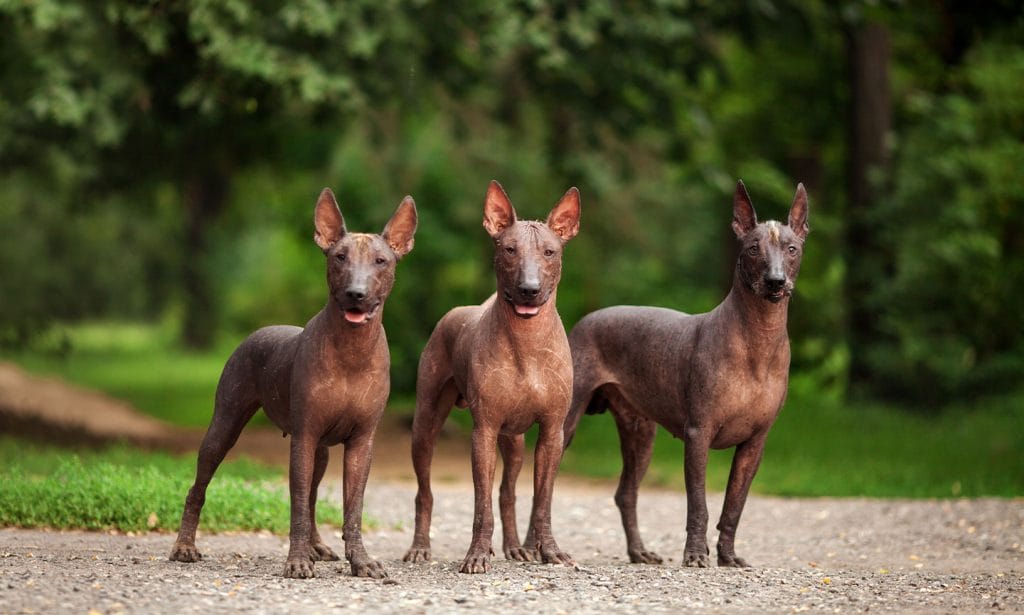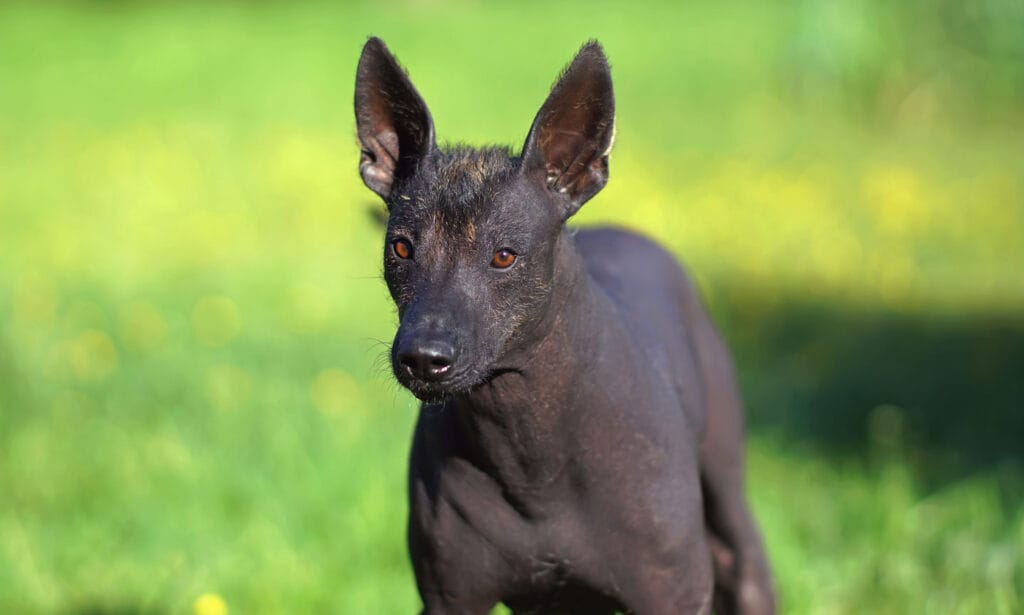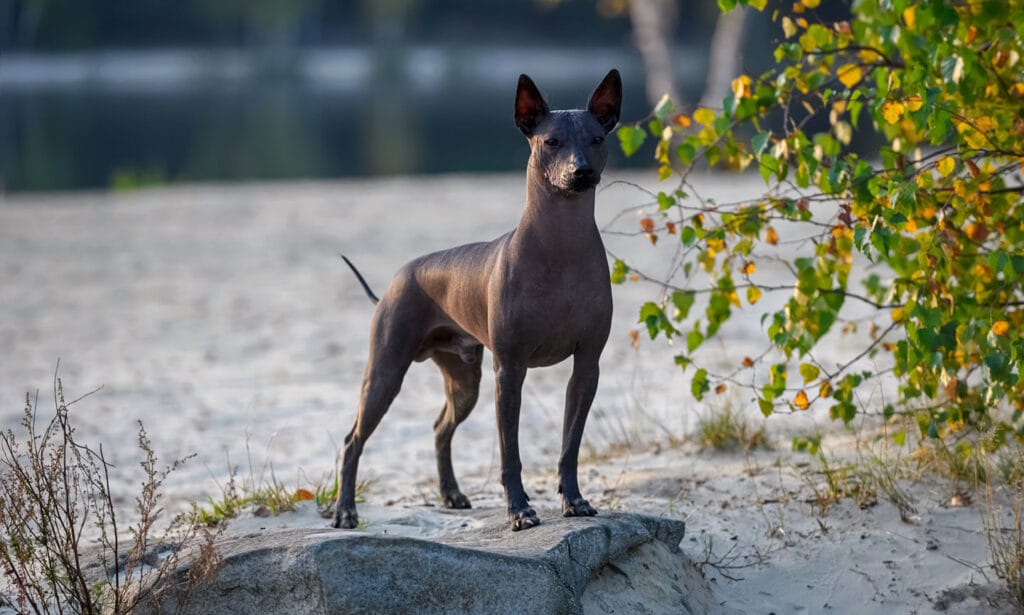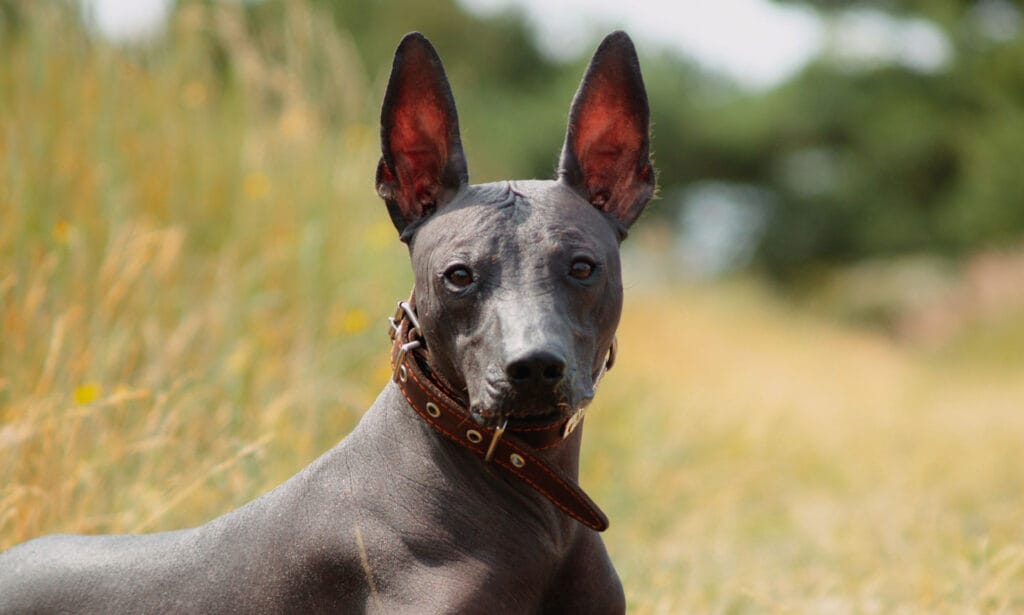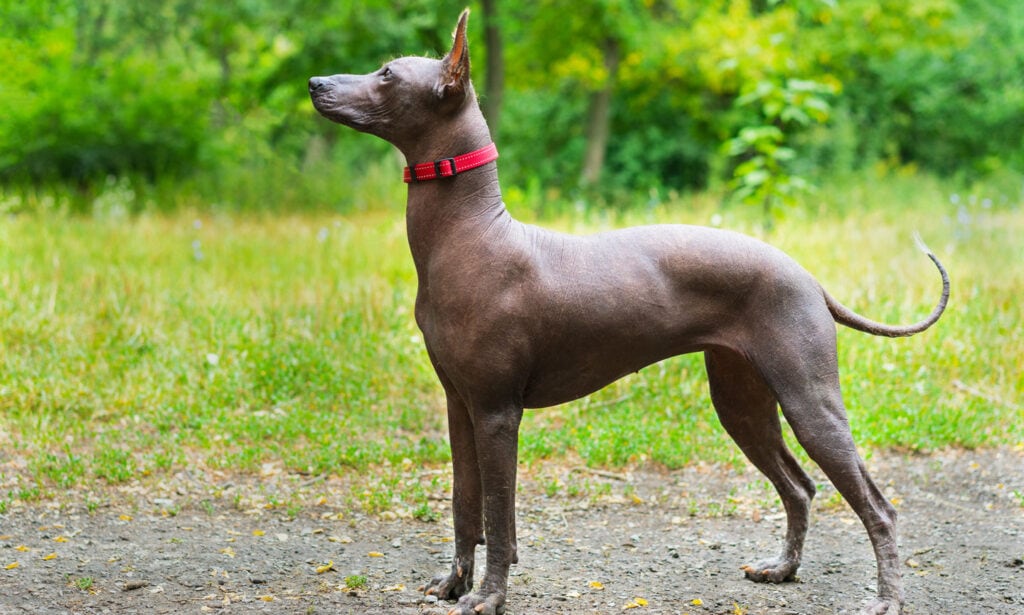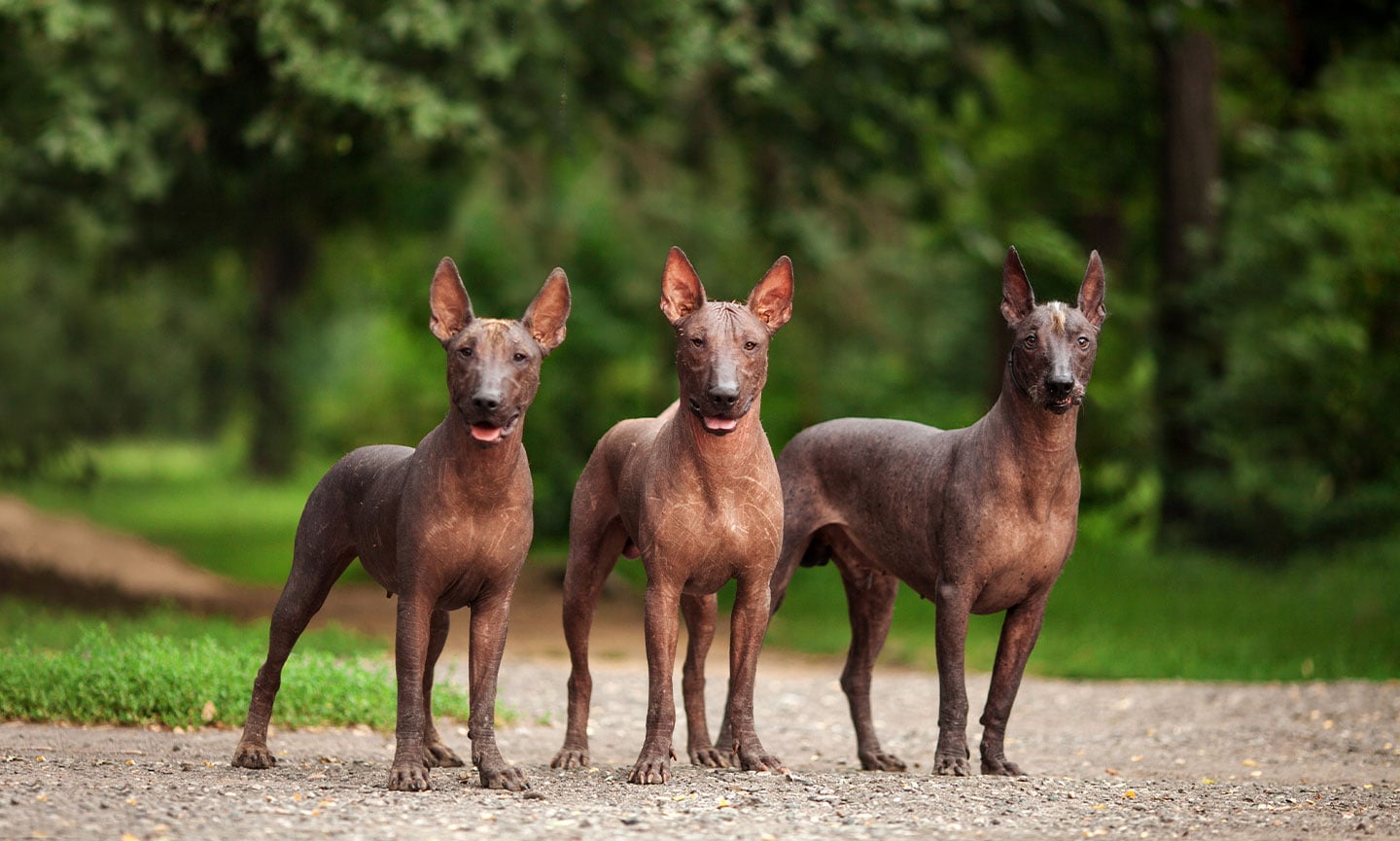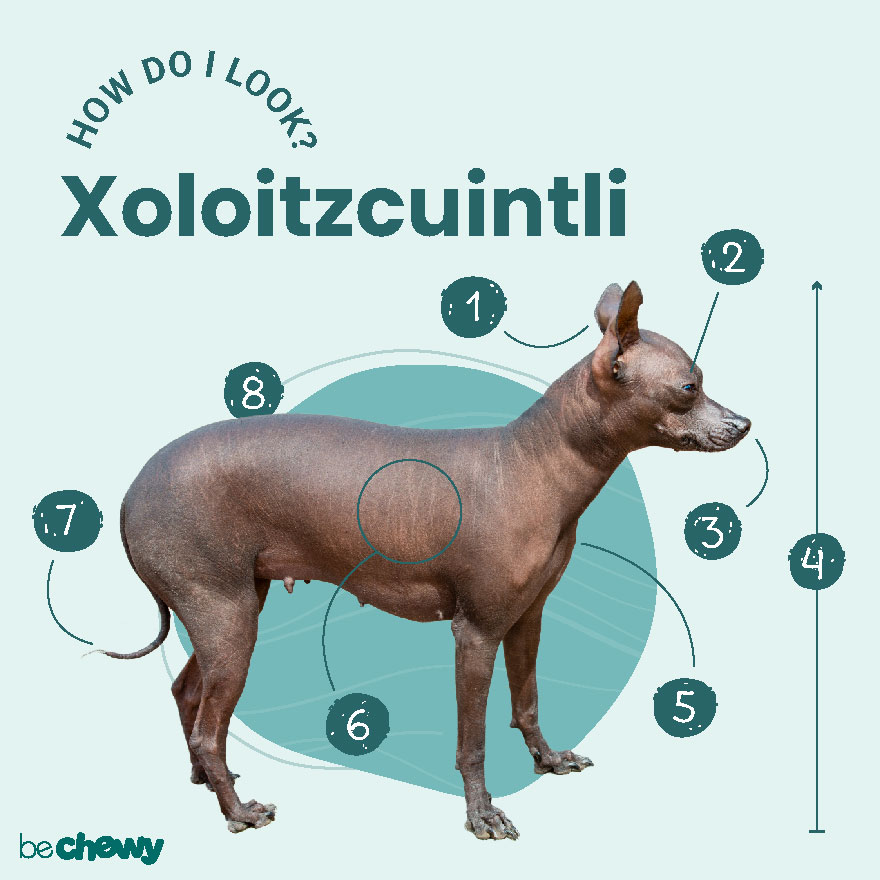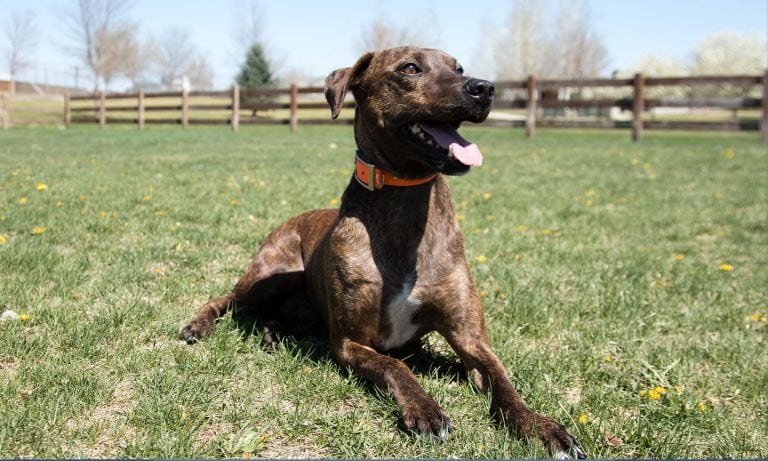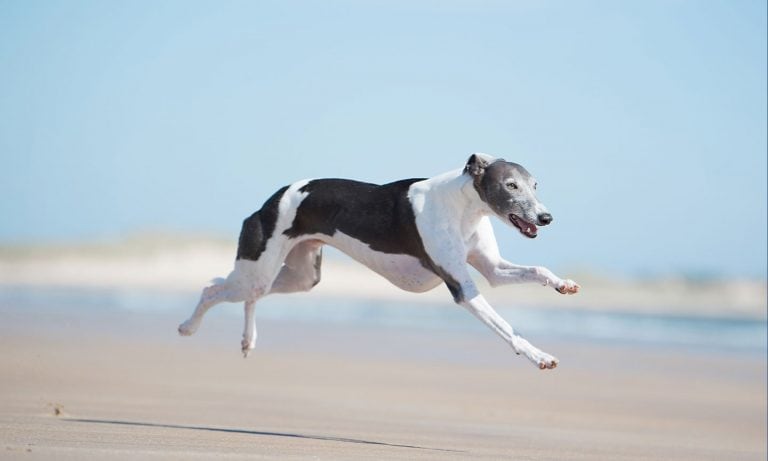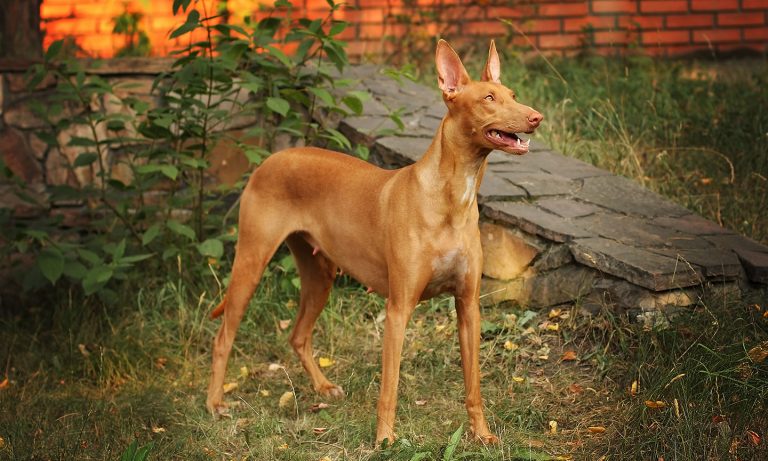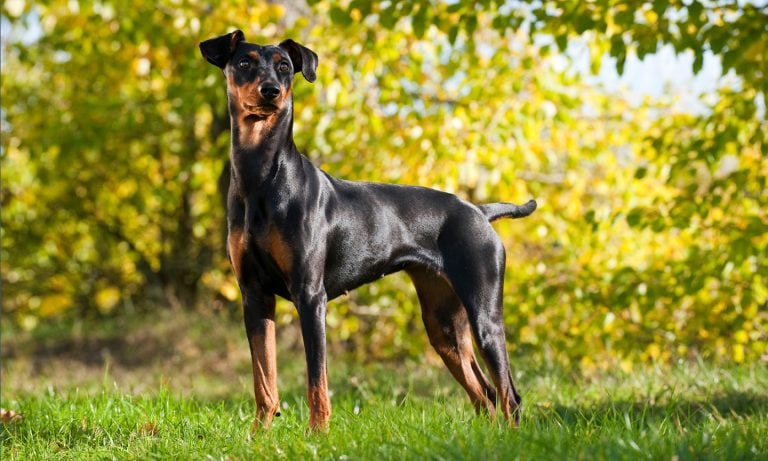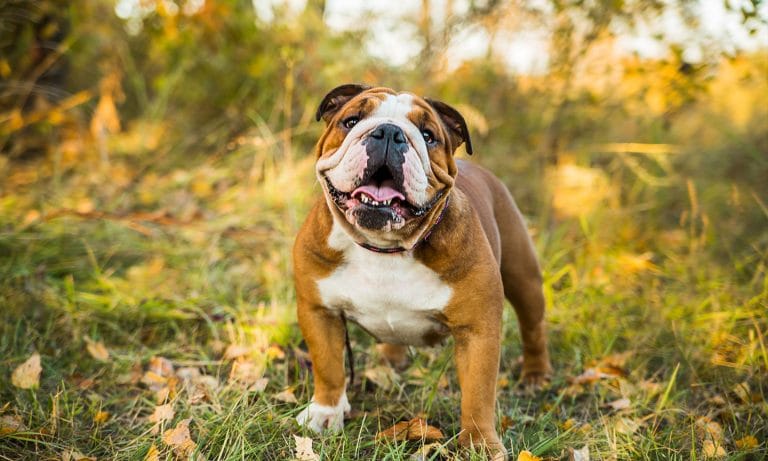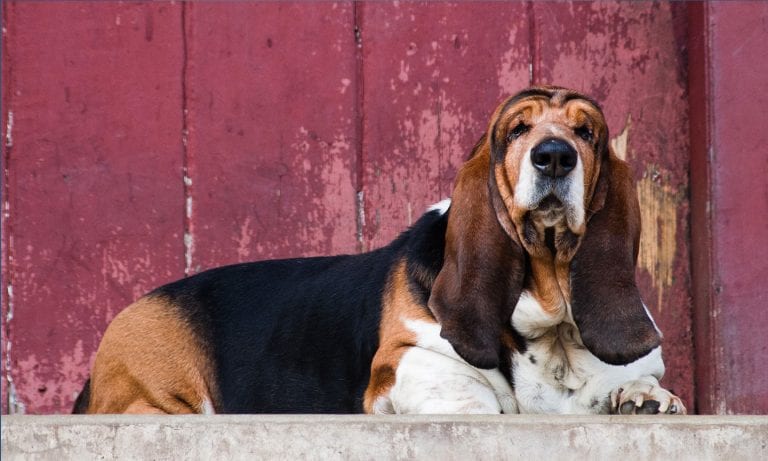Looking for a constant canine companion who lives and breathes to be by your side? The Xoloitzcuintli (pronounced show-lo-eats-QUEENT-lee, or show-lo for short) is an ancient dog breed who expects your full attention at all times. From errands to the office, it’s best to take them everywhere you go. (FOMO much?) Just be prepared to answer everyone’s questions about what type of dog—or even what type of animal—you’ve got with you. This hairless dog breed stands out from the crowd.
Breed Snapshot
Temperament:
LovingLoyalAlertCoat Color:
BlackGrayBronzeBrindleDark BrownLiverPalominoRedFawnSlateSable
Best For
The Xoloitzcuintli is a rare, ancient and hairless dog breed originating in Mexico thousands of years ago. These Mexican hairless dogs were considered sacred by the Aztecs, and today are revered for their loyalty, intelligence and calm demeanor.
Xoloitzcuintli Temperament
Xoloitzcuintli dogs are loyal and loving, and they are in need of constant human contact. They might be somewhat aloof with strangers but are very affectionate with their family. They form a strong bond with their favorite person (spoiler: that’ll probably be you), but they’ll spread the love around with the whole fam, including tiny humans and four-legged pals. These pups are typically gentle with children and are known to “grip” their humans with their webbed toes in a hug—families with small children should be ready for lots of loving “dog hugs.”
While they love other animals who are part of their family, Xolos are not the kind of dog you take to the dog park and expect to become friends with every other dog out there. They’re a primitive breed, so they still have some instincts (like hunting) that are stronger than in breeds like Labrador Retrievers. Xolos have a bit of a prey drive, which is why it’s so important to socialize them as much as you can from an early age to help them get used to family cats and other small pets.
Xolo pups may be bitey, but they are not naturally aggressive and grow out of it after the “teen years.” An adult, well-socialized Xolo is both calm and alert: They are excellent watchdogs who will bark when there are changes in their environment but will also happily snuggle with you for a shared nap. (Fun fact: The ancient Aztecs even thought snuggling with a Xolo cured a variety of ailments!)
How to Care for a Xoloitzcuintli
The Xoloitzcuintli is a sensitive dog breed who thrives when given lots of attention. They are true companions who crave your company, so be prepared to take them everywhere you go and to spend time training them to be more at ease when you do have to leave them alone. The good news is, they don’t require a ton of work in the grooming or exercise departments. As largely hairless dogs, regular brushing is not needed. And while they’re active and athletic pups, they only need moderate exercise. A good daily walk around the block and access to an area where they can run will keep them fit and happy.
Xoloitzcuintli Health
Xolos have a lifespan of 13 to 18 years. Because they are a 3,000-year-old breed who naturally evolved without much human manipulation, they are very healthy dogs without many health issues. As a precaution, responsible breeders will test for typical dog breed health conditions (hips, eyes, heart and knees) to ensure the Xolo breed stays healthy for generations. As a Xolo parent, you should also keep an eye out for the following:
- Juvenile Acne: Young Xolos tend to have acne, but they typically outgrow it as they mature. Keep your pup clean and don’t pick at the acne to help the stage pass more quickly.
- Missing Teeth: Hairless Xolos are always missing a few teeth, linked to their hairless genes It’s completely normal and doesn’t cause any issues—they can chew just fine (but don’t give them hard chews), watch closely for any gum irritation or redness, and discuss dental hygiene with your veterinarian. If your Xolo is coated, on the other hand, you can expect them to have all 42 teeth.
- Sunburn: Even though these pups love the sun, they can burn if they stay out for too long (especially the lighter-colored pups). If you’re going to be out for a while, be sure to slather up your pup with a dog-approved sunscreen.
- Hip Dysplasia: Is a condition when the ball and socket that make up the hip joint have a poor fit causing instability of the joint. Sadly, this leads to pain, lameness pain of the joint and surrounding muscles too. While hip dysplasia is more common in large breeds, it also affects the Standard Xoloitzcuintli. Options for treating canine hip dysplasia include surgery as well as managing the condition through medications.
- Luxating Patellas: The patella or “kneecap” can become displaced and cause your Xolo to limp. This can be a sudden hind limp lameness, holding up one hind leg, or even running with a skip. Symptoms can also come and go. Treatment options for a luxating patella range from medical, like anti-inflammatory medications, to surgical.
Xoloitzcuintli History
The Xoloitzcuintli dates back approximately 3,000 to 3,500 years to the time of the Aztecs and can be considered the first dog breed native to the Americas. Unlike more modern breeds, the Xolo evolved through natural selection without being bred for specific purposes and, to this day, still has some of their primitive instincts.
Considered sacred by the Aztecs, Xolos were thought to have healing powers and to guard against evil spirits and intruders. For this reason, they were often sacrificed to guide their owners through the underworld. They even appear in the journals of Columbus and other European Conquistadors as “strange hairless dogs.”
They were first recognized by the American Kennel Club in 1887—referred to as the “Mexican Hairless”—but not much was heard from the breed until a Xolo called Chinito Jr. earned an AKC dog show championship in 1940 (the first and only time a Xolo won the distinction). Not long after, in 1959, the AKC deregistered the breed due to their scarcity, but recognized it again in 2011 as its 173rd breed.
Today, it’s estimated that there are around 30,000 Xolos worldwide. So, where’s the best place to find a Xoloitzcuintli pup? You can find a list of reputable Xolo breeders on the American Kennel Club’s website. You can expect to pay thousands of dollars for a Xolo pup—their price is about $1,500 to $3,000 on average. And you’ll need to be patient, as puppies this rare are not available year-round. You can also reach out to a Xoloitzcuintli rescue organization or Xoloitzcuintli Club of America to adopt a Xolo.
FAQs
How do you pronounce Xoloitzcuintli?
Xoloitzcuintli is pronounced show-lo-eats-QUEENT-lee. But you can also shorten their name to Xolo, pronounced SHOW-lo.
Do Xoloitzcuintli dogs shed?
Xolos shed very minimally—even the coated variety!
What does Xoloitzcuintli mean?
Xoloitzcuintli’s meaning comes from the name of the Aztec god of fire, Xolotl, who escorted the dead to the underworld, and “itzcuintli,” which is the Aztec word for dog.
Are Xoloitzcuintli rare or extinct?
The Xoloitzcuintli is indeed rare, but the breed is not extinct. It seems to have gained and lost popularity quite a bit throughout the years, ever since it was first recognized as an official breed by the American Kennel Club in 1887.
What are the most popular dog names for Xoloitzcuintli dogs?
The most popular Xoloitzcuintli names include Dante, Max, Buddy, Duke, Jake, Toby, Bella, Lucy, Lulu, Coco, Nala and Zoe. Get more dog names here.
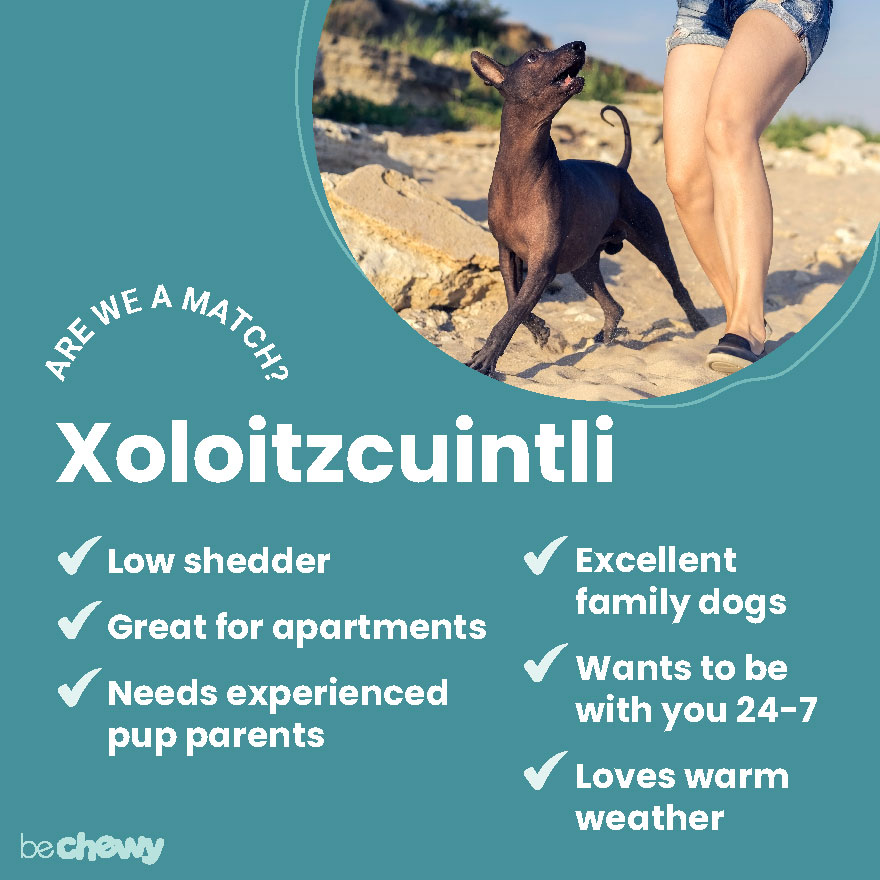
Top Takeaways
Xoloitzcuintli are calm, alert dogs with a loving and loyal nature. They love their family, but can be wary of people and pets they don’t know. This primitive breed may not be the most suitable for first-time pet parents, but will thrive with someone who understands the dog’s need for training. A Xoloitzcuintli craves your attention—so make sure you take them everywhere you go.
Expert input provided by veterinarian Diane Voss, DVM, who is an experienced Xoloitzcuintli and Rottweiler breeder at Ivoss Rottweilers, and Amber Walker, KPA-CTP, zoologist and owner of Animal Intuitions.
Breed characteristic ratings provided by Dr. Sarah J. Wooten, DVM, CVJ, a veterinarian at Sheep Draw Veterinary Hospital in Greeley, Colorado; dog trainer and behavior consultant Irith Bloom, CPDT-KSA, CBCC-KA, CDBC, owner of The Sophisticated Dog, LLC, in Los Angeles; and certified animal behavior consultant Amy Shojai, CABC, in Sherman, Texas.
The health content was medically reviewed by Chewy vets.
Female Names
- Maya
- Xochitl
- Luna
- Sasha
- Lola
- Xola
- Metztli
- Izzy
- Petunia
- Ellie
Male Names
- Dante
- Vito
- Xolo
- Lambeau
- Poe
- Dante
- Loki
- Guapo
- Turbo
- Leo
Share:
